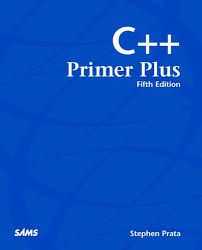White Paper: Mastering C++ with "C++ Primer Plus"
Abstract
C++ is a powerful and versatile programming language that has been used to build a wide range of applications, from operating systems to video games. "C++ Primer Plus" by Stephen Prata is a comprehensive guide that covers the fundamentals of C++ programming, making it an excellent resource for both beginners and experienced programmers. This white paper explores the key concepts presented in the book and highlights its relevance in modern software development.
Introduction
C++ Primer Plus is a well-regarded book that provides a clear and concise introduction to C++. It covers the core language features, standard library, and advanced topics like object-oriented programming, templates, and the Standard Template Library (STL). By mastering the concepts presented in this book, you can develop robust and efficient C++ programs.
Key Concepts Covered in C++ Primer Plus
- C++ Basics:
- Variables and Data Types: Understanding the fundamental building blocks of C++ programs.
- Operators and Expressions: Learning how to perform calculations and manipulate data.
- Control Flow Statements: Mastering conditional statements (if, else, switch) and loops (for, while, do-while).
- Functions: Defining and using functions to modularize code and improve readability.
- Pointers and Arrays: Working with memory addresses and data structures.
- Object-Oriented Programming (OOP):
- Classes and Objects: Creating custom data types and instances of those types.
- Inheritance: Building new classes based on existing ones to promote code reusability.
- Polymorphism: Writing code that can work with objects of different types.
- Operator Overloading: Defining custom behavior for operators.
- Standard Template Library (STL):
- Containers: Using various data structures like vectors, lists, maps, and sets.
- Iterators: Traversing and manipulating elements in containers.
- Algorithms: Applying common algorithms like sorting, searching, and transforming data.
- Input/Output Streams:
- File I/O: Reading from and writing to files.
- Formatted Input/Output: Using streams to format data.
- Advanced Topics:
- Templates: Creating generic functions and classes.
- Exception Handling: Managing errors and exceptions gracefully.
- Preprocessor Directives: Using macros and conditional compilation.
Practical Applications of C++
C++ is used in a wide range of applications, including:
- System Programming: Developing operating systems, device drivers, and embedded systems.
- Game Development: Creating high-performance games and game engines.
- High-Performance Computing: Implementing scientific simulations and numerical algorithms.
- Web Development: Building web servers and web applications.
- Database Systems: Designing and implementing database systems.
Conclusion
"C++ Primer Plus" is an excellent resource for anyone looking to learn C++. By mastering the concepts presented in the book, you can develop robust and efficient C++ applications. By combining theoretical knowledge with practical experience, you can become a proficient C++ programmer and contribute to a wide range of software projects.
References:
- Prata, S. (2021). C++ Primer Plus (6th Edition). Pearson Education.
Additional Tips
- Practice Regularly: The more you practice, the better you'll become.
- Experiment with Different Code Examples: Try different approaches to solve problems.
- Join Online Communities: Participate in forums and communities to learn from other C++ programmers.
- Contribute to Open-Source Projects: Gain practical experience and collaborate with other developers.
- Stay Updated with the Latest C++ Standards: Keep up with the latest language features and best practices.
By following these tips and leveraging the knowledge gained from "C++ Primer Plus," you can embark on a successful journey of C++ programming.



